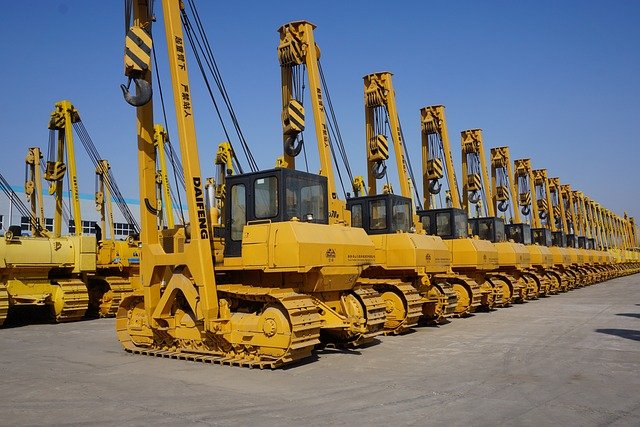Mini Excavators for Everyday Construction Tasks
Mini excavators are compact machines ideal for digging, grading, and demolition. Their small size allows easy maneuvering in confined areas, while attachments expand their versatility. They are widely used in landscaping and residential construction.

What Makes Mini Excavators Essential for Construction Work
Mini excavators typically weigh between 1 and 10 tonnes, making them significantly lighter than their full-sized counterparts whilst still delivering impressive digging capabilities. Their compact design allows operators to work in confined areas such as backyards, narrow alleyways, and indoor renovation projects. The rubber tracks commonly fitted to these machines minimise ground disturbance, making them ideal for working on finished surfaces or delicate landscaping projects.
The hydraulic systems in modern mini excavators provide exceptional control and precision, enabling operators to perform intricate tasks such as trenching around existing utilities or carefully grading slopes. Many models feature zero-tail-swing designs, allowing the machine to rotate without the rear extending beyond the track width, further enhancing their utility in cramped working conditions.
Common Applications for Mini Excavators in Daily Construction
These versatile machines excel in numerous construction scenarios. Trenching for utilities, foundations, and drainage systems represents one of their primary uses, as the precise control allows for accurate depth and width maintenance. Landscaping projects benefit significantly from mini excavators, particularly for tasks such as pond excavation, retaining wall preparation, and large-scale garden redesign.
Demolition work within existing structures often requires the careful approach that mini excavators provide. Their ability to operate in confined spaces whilst maintaining adequate power makes them perfect for interior demolition, basement excavation, and selective structural removal. Material handling becomes more efficient with the various attachments available, including buckets of different sizes, hydraulic hammers, and augers for specific applications.
Selecting the Right Mini Excavator for Your Project Needs
The selection process should begin with assessing the typical working environment and primary tasks. Projects requiring frequent transport between sites may benefit from smaller models that can be easily loaded onto standard trailers. Conversely, projects involving harder ground conditions or deeper excavation requirements may necessitate larger mini excavators with enhanced hydraulic power.
Attachment compatibility plays a crucial role in maximising versatility. Quick-attach systems allow operators to switch between tools rapidly, transforming a single machine into multiple specialised tools throughout the working day. Consider the availability of attachments such as tilting buckets, compactors, and specialty tools that may be required for specific project requirements.
Understanding Mini Excavator Specifications and Features
Engine power typically ranges from 10 to 75 horsepower across the mini excavator category, with fuel efficiency being a significant consideration for daily operations. Modern machines often incorporate advanced emission control systems to meet current environmental standards whilst maintaining performance levels.
Operator comfort and safety features have evolved considerably in recent models. ROPS (Roll-Over Protective Structure) and FOPS (Falling Object Protective Structure) certification provide essential safety assurance, whilst ergonomic controls and climate-controlled cabs enhance operator productivity during extended working periods. Many newer models include advanced monitoring systems that track machine performance and maintenance requirements.
Cost Considerations for Mini Excavator Investment
The financial aspect of mini excavator acquisition varies significantly based on size, features, and whether purchasing new or used equipment. New mini excavators typically range from £15,000 for basic 1-tonne models to £80,000 or more for high-specification 10-tonne machines with advanced features.
| Machine Size | New Price Range | Used Price Range | Rental (Daily) |
|---|---|---|---|
| 1-2 Tonne | £15,000-£25,000 | £8,000-£18,000 | £80-£120 |
| 3-5 Tonne | £25,000-£45,000 | £15,000-£35,000 | £120-£180 |
| 6-8 Tonne | £45,000-£65,000 | £30,000-£50,000 | £180-£250 |
| 9-10 Tonne | £60,000-£80,000+ | £40,000-£65,000 | £250-£350 |
Prices, rates, or cost estimates mentioned in this article are based on the latest available information but may change over time. Independent research is advised before making financial decisions.
Maintenance and Operational Efficiency Guidelines
Regular maintenance schedules significantly impact the longevity and reliability of mini excavators. Daily checks should include hydraulic fluid levels, track tension, and general visual inspections for wear or damage. Scheduled services typically occur every 250-500 operating hours, depending on working conditions and manufacturer recommendations.
Proper operator training enhances both safety and equipment longevity. Understanding the machine’s capabilities and limitations prevents unnecessary stress on components whilst maximising productivity. Many manufacturers and dealerships offer comprehensive training programmes covering operation, basic maintenance, and safety procedures.
Mini excavators represent a practical solution for numerous construction challenges, offering the perfect balance between power and manoeuvrability. Their versatility, combined with relatively low operating costs compared to larger equipment, makes them an excellent investment for contractors handling diverse project requirements. Whether for utility work, landscaping, or general construction tasks, these machines continue to prove their worth across the construction industry.




